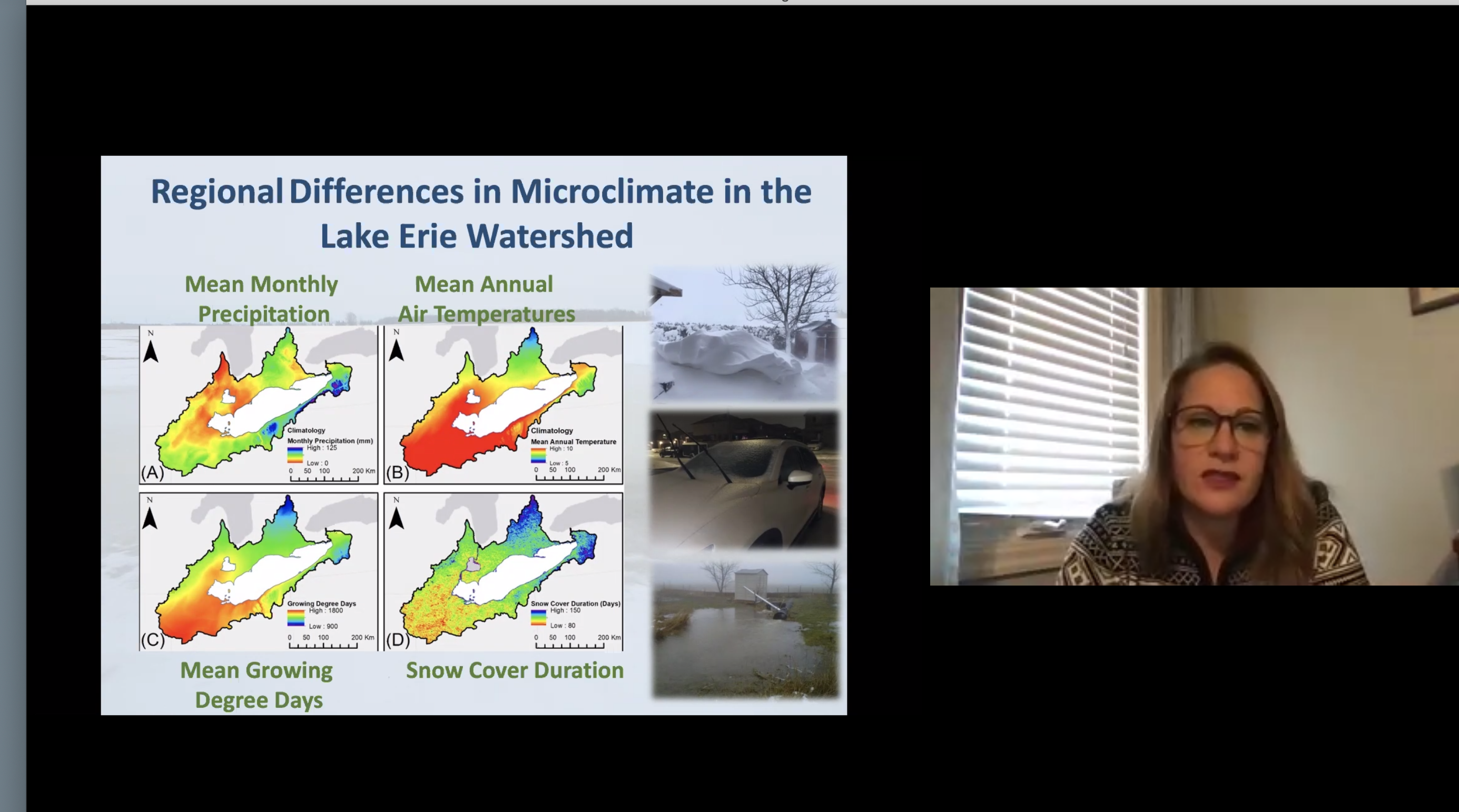On Monday, November 23, Water Institute member Merrin Macrae, a professor in Waterloo’s Department of Geography and Environmental Management, was the keynote speaker in a webinar co-hosted by the Grand River Conservation Authority (GRCA) and Global Water Futures Agricultural Water Futures project where Macrae is the Principal Investigator.

Macrae delivered a presentation on research and findings from the Agricultural Water Futures project related to phosphorus transport in agricultural landscapes and the suitability of various BMPs to limit impacts on water quality in receiving waters. Specifically, she discussed the role of climate and tile drains in phosphorus transport and control that can be implemented to mitigate impacts. During the presentation, Macrae emphasized the importance of site-specific BMP solutions that take into account site-specific features such as microclimates, landscape types (e.g. soil types, elevation, slope), and differences in tile drainage.
Participants were interested in learning what management practices would be the most effective, including the most cost-effective, for managing phosphorus loss (e.g. manure storage vs. cropping practices). There was also keen interest from participants about tools that would help farmers select the best BMP for their land.
More information about Macrae’s Agricultural Water Futures project can be found here.